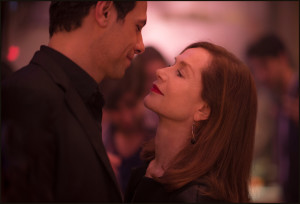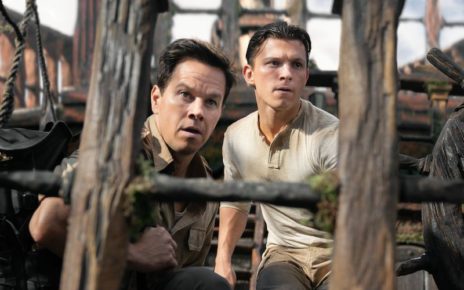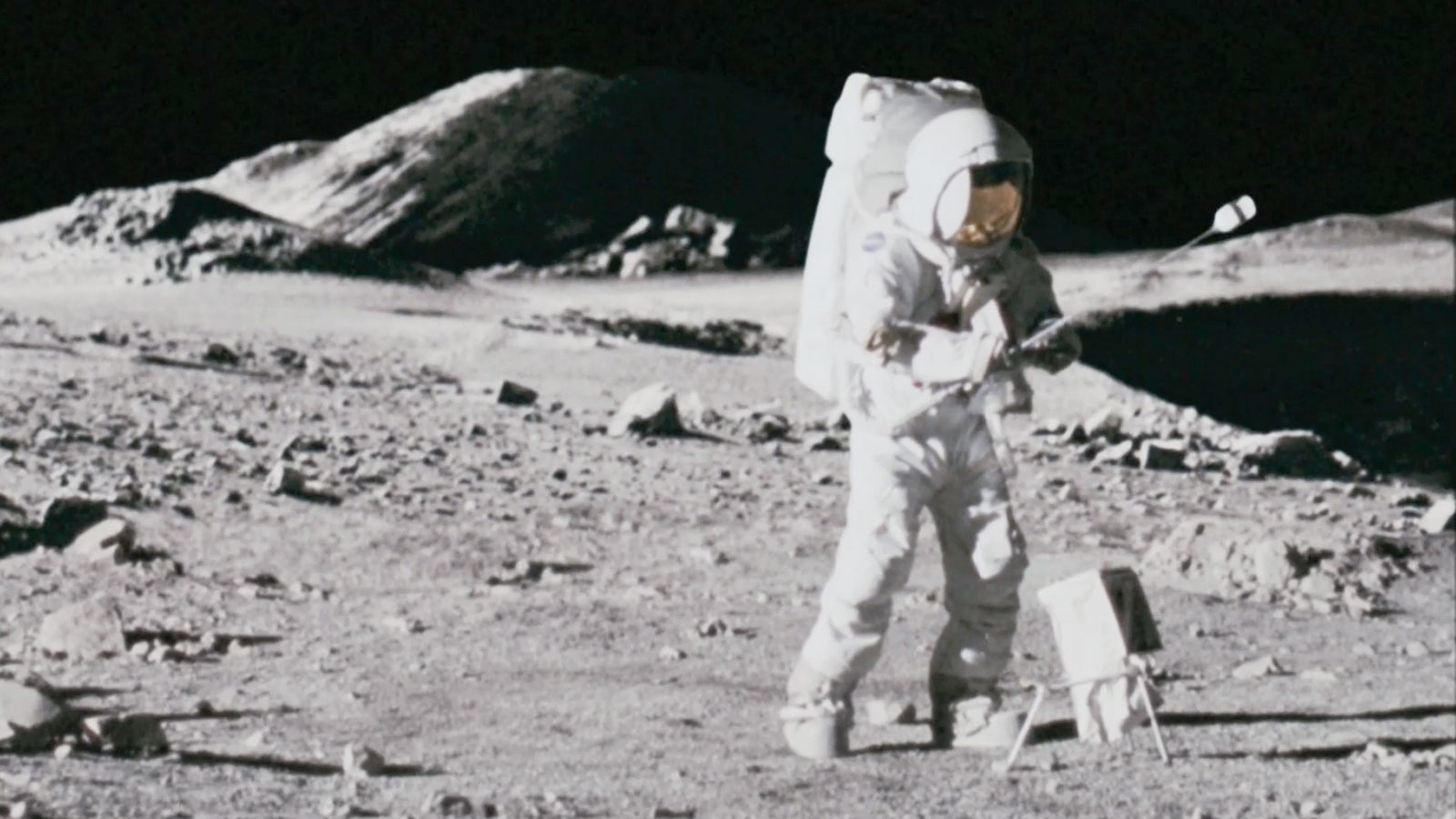Michèle Leblanc (Isabelle Huppert) is home-invasion raped before we even get a picture. It’s just sound, a black screen, and a guessing game for the first minute or so. When the picture appears, the violator straightens up and leaves the room and a corpse-like victim on the floor. Is the woman dead? No, far from it. And then her subsequential actions are SO matter-of-fact we wonder if the rape was staged. As Michèle gently cleans up the busted china and goes about the household chores never once calling the police or displaying emotion in any form, the only conclusion I had was, “this is a put on, right? It’s some sort of sexual game she plays.” Even when she calls the locksmith to change her home security, it still seemed fake.
It wasn’t, of course. And the indirect culprit is the media. Michèle’s old man was a serial killer back in the day and an exposé of his deeds painted then 10-year-old Michèle as accomplice rather than victim. While this is the ideal time to be critical of the media – the media built the Frankensteinian Donald Trump after all – Elle is not here to tell us what news agencies handle poorly, just to tell us how Michèle has dealt with it. Her reaction is that the police and anybody with a camera is an enemy, never to be trusted, even if it means dealing with a rapist herself. That’s messed up. Elle is a messed up movie.
In fact, there is something off-putting about every relationship Michèle has – her son Vincent (Jonas Bloquet) is cowed by his cheating, abusive fiancée, and brings his angst to mom’s doorstep. Her mom is suddenly tied to her twentysomething pilates instructor. Michèle runs a video game designing business with childhood friend Anna (Anne Consigny) and is having an affair with her husband, Robert (Christian Berkel). The video games in production have a disgustingly misogynistic sexual angle; the grown male minions in the company fall into categories of those who either fawn over Michèle or want to kill her. And she’s into her married neighbor Patrick (Laurent Lafitte) – into as in “binoculars and short skirts” into him. While we’re introduced to the players in her life, we are periodically reminded that the rape wasn’t a one-time thing – this guy knows who she is and wants more. Michèle lives alone, of course, in a spacious house with a hefty window-to-wall ratio.
BTW, I’m guessing Michèle is the titular character – to tell the truth, I never heard a single person call her “Elle” or even “Èle” the whole film … maybe I was just watching the wrong film. Hmmmm. No matter; the film I watched was quite convoluted, and yet had control of the situation at all times. This could have been a great film –it was complicated and disquieting and delved into alienation and sexual deviance the way American films just can’t seem to—and yet, Elle seemed tripped up by simple, stupid moments. For instance, when you make a point of a character cheating to the extent that she has a white fiancée and births a black baby, she has to show up at the dinner party three weeks later with a black baby. This might not be a key plot point, but it was big enough to demonstrate the emotional outlook of three people in the film, including our heroine and her son – you just can’t get that stuff wrong. There is a critical moment after the denouement that completely misreads the action just shown to us in the climax. To me, this was like a gymnast sticking the landing and then giving the judges the finger in lieu of a smile.
might not be a key plot point, but it was big enough to demonstrate the emotional outlook of three people in the film, including our heroine and her son – you just can’t get that stuff wrong. There is a critical moment after the denouement that completely misreads the action just shown to us in the climax. To me, this was like a gymnast sticking the landing and then giving the judges the finger in lieu of a smile.
Elle is a film for those who sympathize with idiocy magnets – “idiocy” is obviously a euphemism here – Michèle is a woman who built a life repelling the negative elements of her life. She lives alone, runs her own business, generally avoids confrontation and dramatic display, and yet negative elements find her again and again until she’s forced to deal with them. Were hers not such a unique tale, it would be a grand metaphor for life in general. If your tender countenance can handle a rape scene or four, I almost recommend Elle.
♪Michèle, or “Elle”
Raped in act I, gee, isn’t that just swell?
I shouldn’t dwell
Michèle, pray tell,
Is each one in your life a ne’er-do-well?
What fresh Hell
“I loathe you, I loathe you, I loathe you”
Say strangers on the street
Isn’t it great to meet
Random people who madden just like
Those in your world
My Michèle♫
Rated R, 130 Minutes
D: Paul Verhoeven
W: David Birke
Genre: Broken people
Type of person most likely to enjoy this film: The uninhibited
Type of person least likely to enjoy this film: Sensitive folks
♪ Parody inspired by “Michelle”



